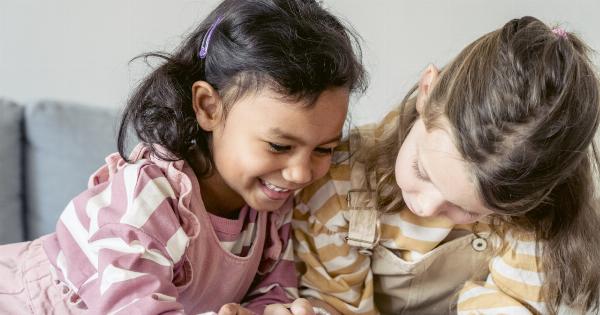Children, with their boundless energy and curiosity, have an innate ability to find happiness in the simplest of things. From playing with friends to exploring nature, children can extract joy from various experiences.
The factors that contribute to a child’s happiness are multifaceted and can vary from one child to another. In this article, we will explore the different kinds of things that make children happy and contribute to their overall well-being.
1. Playtime and Bonding
One of the most important aspects of a child’s happiness is their ability to engage in playtime and form bonds with others. Play allows children to explore their creativity, develop their imagination, and learn important social skills.
Whether it’s building blocks, playing dress-up, or participating in team sports, the opportunity to engage in different kinds of play brings immense joy to children.
2. Outdoor Adventures
Exploring the great outdoors has a magical effect on children. From climbing trees to running through fields, being in nature stimulates their senses and provides a sense of freedom.
Outdoor adventures allow children to develop a connection with the natural world, fostering a sense of wonder and happiness.
3. Learning and Discovery
Children are naturally curious and have a thirst for knowledge. Engaging their minds through various learning experiences brings them immense happiness. It can be through reading books, solving puzzles, or conducting simple science experiments.
The joy of discovery and the satisfaction of learning something new contribute significantly to a child’s happiness.
4. Family and Love
The love and support of family play a crucial role in a child’s happiness. Spending quality time together, sharing meals, and participating in activities as a family create a sense of security and belonging.
Knowing that they are loved unconditionally contributes to a child’s overall well-being and happiness.
5. Creative Expression
Children are naturally creative beings who revel in expressing themselves. Engaging in activities such as painting, drawing, singing, or dancing allows children to unleash their creativity and emotions.
The freedom to express themselves artistically brings immense joy and a sense of accomplishment to children.
6. Kindness and Empathy
Acts of kindness and empathy hold great significance in a child’s happiness. Teaching children the value of being compassionate, understanding, and helping others cultivates a sense of purpose and fulfillment.
Acts of kindness, both given and received, create feelings of joy and contentment in children.
7. Celebrating Achievements
Recognizing and celebrating a child’s achievements, whether big or small, is essential for their happiness. Praise and encouragement help boost their self-esteem and confidence, motivating them to continue striving and achieving their goals.
Acknowledging their efforts and celebrating milestones fosters a positive sense of self and happiness in children.
8. Friendships and Social Interaction
Having friends and engaging in social interactions is vital for a child’s happiness. Friendships allow children to develop important social skills, experience a sense of belonging, and create lasting memories.
The camaraderie and laughter shared with friends bring immense happiness and contribute to a child’s social and emotional well-being.
9. Sense of Independence
As children grow, developing independence becomes an essential aspect of their happiness. Giving children age-appropriate responsibilities and opportunities for decision-making empowers them and fosters a sense of accomplishment.
Accomplishing tasks independently, whether it’s tying shoelaces or completing a school project, enhances a child’s confidence and happiness.
10. Making Time for Fun and Relaxation
In this fast-paced world, children need to have time for fun and relaxation.
Allowing them to engage in activities they enjoy, such as reading for pleasure, playing video games, or simply having unstructured playtime, rejuvenates their spirit and brings joy. Balancing structured activities with free time allows children to recharge and maintain overall happiness.
Conclusion
Children find happiness in a multitude of things, ranging from playtime and bonding to outdoor adventures and creative expression. The factors that contribute to a child’s happiness are unique and can vary from one child to another.
By recognizing the importance of play, family, learning, and relationships, we can enhance a child’s overall well-being and help them lead fulfilling and happy lives.






























